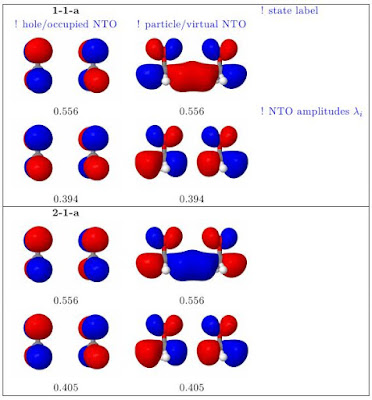The theoretical density, orbital relaxation and exciton analyis suite, conveniently abbreviated TheoDORE, goes into version 1.2. There is support for a number of different quantum chemical programs: Q-Chem, Columbus, Molcas, Turbomole, Orca, Gaussian, and various types of GAMESS. Aside from the charge transfer number analysis, the electron-hole correlation plots, and the natural transition orbitals, TheoDORE also lets you perform various kinds of population analysis. You can also process density matrices to get unpaired electrons, bond orders, and attachment/detachment densities. You can even get an approximate exciton size (even though the real thing is only available in Q-Chem). And everything is embedded in an ever improving user interface. So, check it out :)
There is also a new tutorial that should allow you to get started quickly and plot such nice things as these natural transition orbitals:
What's Going on With Smart Rings?
-
Ultrahuman smart rings currently can’t be sold in the US. We caught up with
the company’s chief business officer to discuss what’s next for ring-based
heal...
1 hour ago

No comments:
Post a Comment